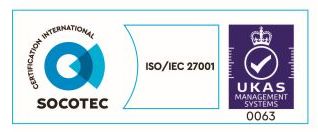The General Data Protection Regulation was introduced in May 2018 to protect the personal data and privacy of EU citizens from unsolicited communications from businesses. As such, gone are the days where companies could purchase a large customer database and then send unsolicited offers or messages to people who made it onto the list. Instead, new marketing and data handling strategies have arisen to ensure that the regulation is being met.
A positive outcome from GDPR is that it has formed a greater level of trust between businesses and their customers. This is because data collection has become more transparent and consent is required before businesses can send messages. With the flexibility to opt-out at any time, customers are more willing to share data with the companies that they love and trust.
Initially, the talk of fines, as a result of data misuse, scared many businesses into inactivity. However, as a clearer understanding of GDPR has been established over time, businesses have grown to discover the benefits. The purpose of GDPR is to give control back to consumers, not to persecute marketers.
It is now mandatory for businesses to safeguard data and ensure that only a few professionals have access. This is known as identity access management and limits the likelihood of user data being exposed due to cyberattacks or poor data management. The long-term benefit of this is that customers should become more confident when sharing data with trustworthy businesses.
Companies are also no longer allowed to use an individual's personal data to make solely automated decisions. These are defined as any decision that is made using data that excludes any human influence on the outcome. From a marketing standpoint, this new rule allows organisations to understand their customers better by ensuring that human input contributes to key decision making.
The biggest change that has come directly from GDPR is that customers now have the power to be selective when it comes to sharing data with companies. In the long run, this is great news for both brands and consumers because it prevents mass marketing campaigns that targeted a large number of people with no interest.
The result is that consumers are no longer spammed and businesses save time and effort by focusing on sending promotional offers and updates to those who genuinely want to receive them. This shift ultimately means that customers are far more likely to engage with companies and brands that they love.
The SMS marketing industry was significantly less regulated before GDPR was implemented. Lots of companies took advantage of SMS, and email, to send unsolicited messages. However, the industry has now changed significantly for the better. Customers that opt-in are welcoming promotional offers, store updates, delivery confirmations, competitions, and more. All via SMS marketing.
Brands are also building customer trust by sending preference updates either annually or half-yearly. This has led to higher engagement and conversion rates as campaigns are only sent to those with a genuine interest. These preference updates also ensure that customers feel more valued and can have a positive impact on the overall image of brands.
Another positive change is that campaign costs have decreased as customers with little interest can opt-out much easier. This also means a higher ROI and more accurate reporting in the long run. After all, how can you measure the success of a campaign if you sent it to a large group of people that have zero interest?
As a result, many companies are quickly incorporating SMS into their marketing strategies. The ability to type out a 160-character message and send a direct message to both individuals or groups of customers provides lots of opportunities. With business SMS traffic increasing by 10% in 2020, it's looking likely that this upward trend will continue in the future.
If you have any queries regarding the impact of GDPR on SMS marketing then please get in touch with us and we'll be happy to answer any further questions.


Hi, I'm Andrew, UK Sales Manager at Reach Interactive. I have a background in sales and I love building relationships with my customers and helping them to grow through the use of digital technology.
TAKING CARE OF MILLIONS OF MESSAGES EVERY SINGLE DAY - TRY US FREE
Use our calculator to work out your price (£) per credit below:
(1 Credit = 1 × 160 character text message).

PARTNER : MIND




©2002-2025 All rights Reserved. Reach Interactive© is a registered trademark of Reach-Data Ltd is registered in the UK and Wales. Registration Number: 04602161. Privacy Policy Terms and Conditions